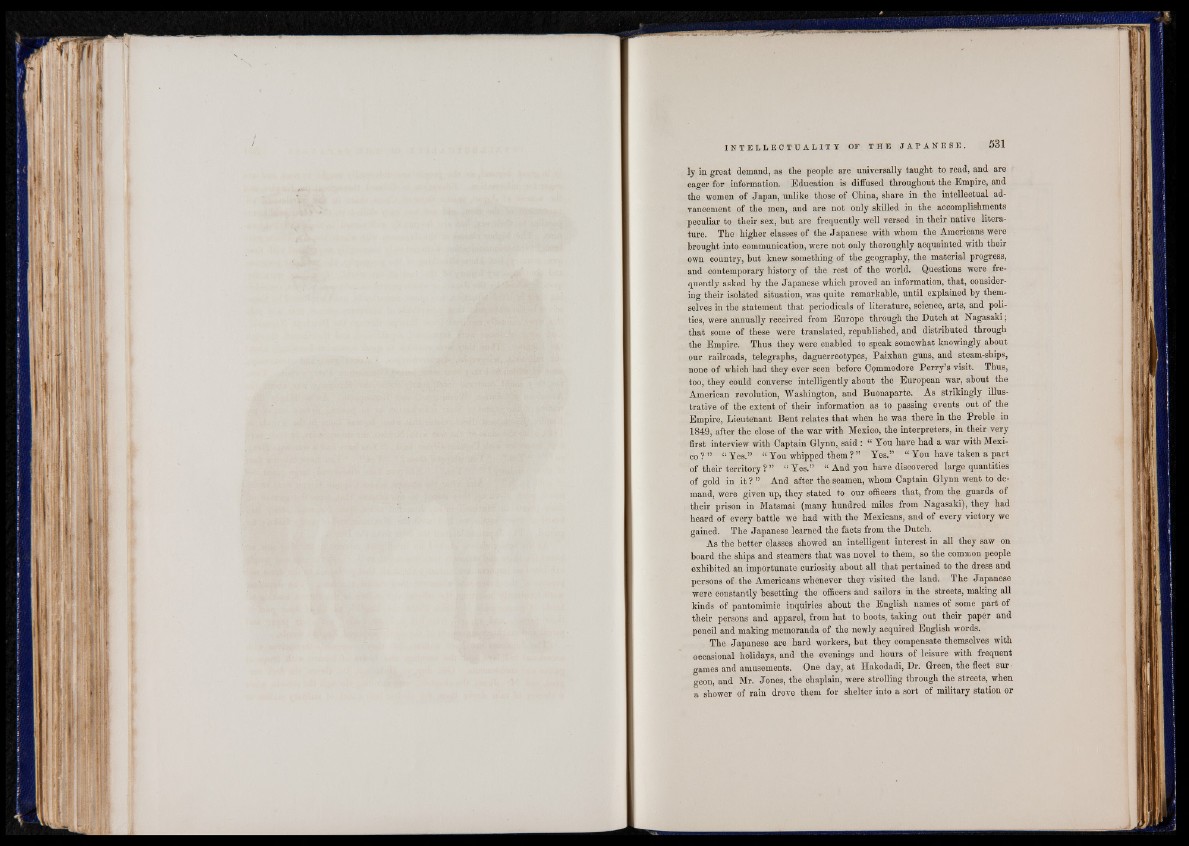
1,1
I
110
ly in great demand, as the people are universally taught to read, and are
eager for information. Education is diffused throughout the Empire, and
the women of Japan, unlike those of China, share in the intellectual advancement
of the men, and are not only skilled in the accomplishments
peculiar to their sex, but are frequently well versed in their native literature.
The higher classes of the Japanese with whom the Americans were
brought into communication, were not only thoroughly acquainted with their
own country, but knew something of the geography, the material progress,
and contemporary history of the rest of the world. Questions were frequently
asked by the Japanese which proved an information, that, considering
their isolated situation, was quite remarkable, until explained by themselves
in the statement that periodicals of literature, science, arts, and politics,
were annually received from .Europe through the Dutch at Nagasaki 5
that some of these were translated, republished, and distributed through
the Empire. Thus they were enabled to speak somewhat knowingly about
our railroads, telegraphs, daguerreotypes, Paixhan guns, and steam-ships,
none of which had they ever seen before CQmmodore Perry’s visit. Thus,
too, they could converse intelligently about the European war, about the
American revolution, Washington, and Buonaparte. As strikingly illustrative
of the extent of their information as to passing events out of the
Empire, Lieutenant Bent relates that when he was there in the Preble in
1849, after the close of the war with Mexico, the interpreters, in their very
first interview with Captain Glynn, said : “ You have had a war with Mexico
? ” “ Yes.” “ You whipped them ? ” Yes.” “ You have taken a part
of their territory?” “ Yes.” 9 And you have discovered large quantities
of gold in it ? ” And after the seamen, whom Captain Glynn went to demand,
were given up, they stated to our officers that, from the guards of
their prison in Matsmai (many hundred miles from Nagasaki), they had
heard of every battle we had with the Mexicans, and of every victory we
gained. The Japanese learned the facts from the Dutch.
As the better classes showed an intelligent interest in all they saw on
board the ships and steamers that was novel to them, so the common people
exhibited an importunate curiosity about all that pertained to the dress and
persons of- the Americans whenever they visited the land. The Japanese
were constantly besetting the officers and sailors in the streets, making all
kinds of pantomimic inquiries about the English names of some part of
their persons and apparel, from hat to boots, taking out their paper and
pencil and making memoranda of the newly acquired English words.
The Japanese are hard workers, but they compensate themselves with
occasional holidays, and the evenings and hours of leisure with frequent
games and amusements. One day, at Hakodadi, Dr. Green, the fleet sur •
geon, and Mr. Jones, the chaplain, were strolling through the streets, when
a shower of rain drove them for shelter into a sort of military station or